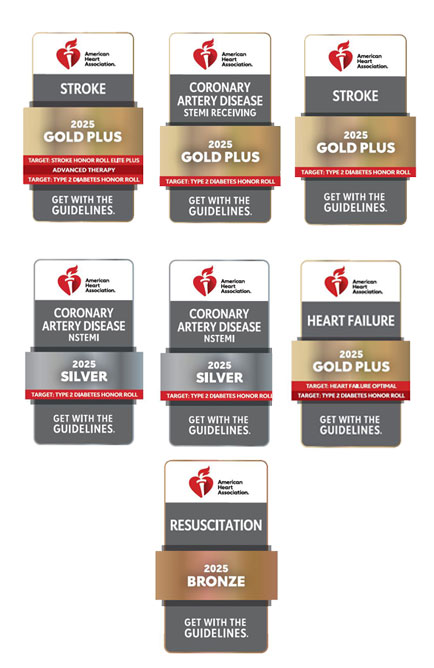
Last October, 48 year-old Powell was downstairs playing with his grandkids and went to stand up and found that he couldn’t move his right arm or leg. So he slid back down onto the sofa. He called for help. His son carried him to the car and his wife drove him to the hospital.
“I knew that an ambulance wouldn’t take me to St. Catherine Hospital because we live in unincorporated Calumet Township – too far away, but I knew I wanted to go there because my mother had been treated there for a stroke the year before and I knew the care would be excellent,” Powell says.
By the time he got to the hospital he wasn’t able to move his right side at all.
“That’s when I met Suzanna Gonzalez, stroke coordinator and several nurses and doctors and they made arrangements to give me tPA right away,” Powell says. “It was about 45 minutes from the time my wife and I left my house to the time I had the tPA shot.”
“My doctors told me my stroke could have been a lot worse if I didn’t have the tPA,” he says. “If they didn’t give me the shot; I could have lost the use of my whole right side. I was in the hospital for seven days in both the ICU and IMCU. After a couple of days in ICU, I was moving around on my own.”
For St. Catherine Hospital patient Virgil Powell, tPA made a difference.
“The nurses and doctors at St. Catherine Hospital were excellent,” Powell says. “I’m back home playing with my grandkids again.”
The hospitals of Community Healthcare System have received the American Heart and Stroke Association’s Stroke Silver Plus Quality Achievement and St. Catherine Hospital has been placed on the Target: Stroke Honor Roll, for improving stroke care. This means that consistently, at least 50 percent of St. Catherine Hospital’s eligible ischemic stroke patients (those with a blood clot) receive the clot busting drug called tissue plasminogen activator or tPA, within 60 minutes of arriving at the hospital (known as ‘door-to-needle’ time).
Learn more about stroke care at the hospitals of Community Healthcare System, click here.


